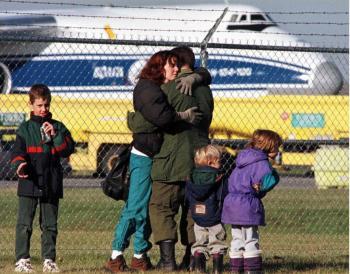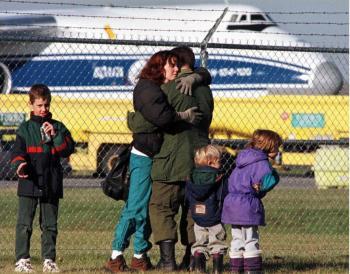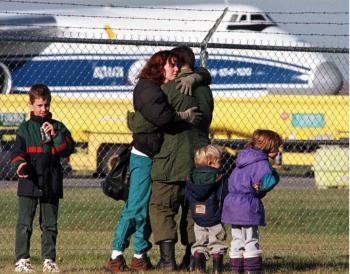Canadian Forces Step Up Efforts to Fight Stigma of Mental Illness
Three months after Steven Lively returned from central Africa in 1996, the Canadian Forces soldier started experiencing post-traumatic stress disorder symptoms.

A Canadian Forces soldier hugs his wife goodbye before departing from Trenton Air Force Base in Trenton, Ontario, in November 1996 to travel to Zaire on a Canadian mission following the genocide in neighbouring Rwanda two years earlier. Carlo Allegri/AFP/Getty Images
|Updated:





